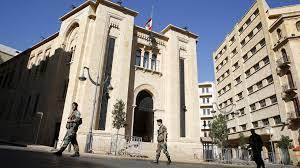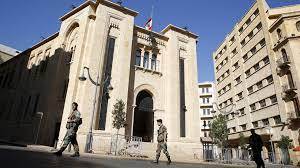Last midnight, the door for candidacies in the parliamentary elections closed with 1,043 candidates, marking the beginning of the withdrawal period for those wishing to retract their nominations, along with the phase of forming electoral lists and alliances. There remains a general acknowledgment that the possibility of elections occurring on schedule is uncertain, especially given the overall situation in the country influenced by the ongoing Russian war in Ukraine and its regional and international repercussions.
Officials at the highest levels assert that parliamentary elections will occur as scheduled, irrespective of ongoing regional and international developments. They indicate that the government, based on ministerial circles, will proceed with steps related to the recovery plan and take necessary interim actions to alleviate the severe economic crisis that worsens daily. Concerns are growing about a potential rise in the US dollar’s value, as the measures adopted by the Bank of Lebanon via the Sayrafa platform are seen as partial and lacking a substantial plan for stabilizing the national currency against foreign currencies.
What pains the Lebanese daily is the persistent failure of the authorities to combat inflation, where consumer goods prices rise daily with the dollar's price and do not decrease when it does. This occurs without oversight to the extent that some large and medium-sized store owners have withdrawn goods from their shelves to stock them away for later resale at significantly higher prices, anticipating further increases in the dollar's value.
There was little notable political activity yesterday, with the focus primarily on the parliamentary elections and the unexpected number of candidates, now totaling 1,043, the highest recorded since 1962, including 155 women. This is notable compared to the 976 candidates in the 2018 elections, of which 111 were women. Concerned sources noted that the increase in candidates suggests substantial financial resources will be spent in these elections, indicating that most candidates come from outside the realm of traditional or emerging parties. These nominations are subject to a "filter" on March 30, the deadline for retracting nominations, with lists due to be submitted by April 5. Any candidate not included in a list by April 4 will have their candidacy voided and cannot recover the 30 million Lira fee.
Among last-minute candidates were Deputy Jamil al-Sayyed, former Minister Charbel Nahas, former Deputy Talal Merhebi, former Bar Association Head Melhem Khalaf, Ziad Abas, and Rima Najem, alongside many activists from civil society organizations. After the electoral lists are formed, the Interior Ministry will begin printing ballots and completing necessary preparations for the electoral process.
Additionally, on the final day of the nomination period, President Fouad Siniora announced his withdrawal from candidacy in Beirut II, following Prime Minister Najib Mikati's withdrawal from the northern district. This marks the completion of the withdrawal of the entire club of former prime ministers, including Saad Hariri and Tamam Salam, from this constitutional election. Reports suggested that Mikati and Siniora had received discouraging regional and international signals about their candidacies in the last 72 hours, aligning with Hariri and Salam, leaving the Sunni electoral arena open to new and old candidates amid fears of decreased Sunni participation in the elections, despite calls from the club of former prime ministers and Dar al-Fatwa for active participation.
Siniora emphasized that his withdrawal does not stem from evasion or boycott; rather, it aims to allow deserving talents and new faces to emerge. He stressed that he would be fully engaged in the electoral process without running himself, prioritizing the interests of citizens, who are the true owners of these elections, urging them to partake as candidates, participants, and voters.
**IMF Developments**
On another front, informed governmental sources revealed that a large delegation from the International Monetary Fund is set to visit Lebanon in the coming days to continue negotiations that commenced in mid-February, delving into various details crucial for preparing the economic and financial recovery plan, aligned with the IMF's comprehensive technical and financial outlook.
The World Bank reiterated its call for "promptly adopting a comprehensive economic and financial recovery plan" and implementing "long-awaited urgent reforms" to avoid complete devastation of social and economic networks and halt the dangerous hemorrhage of human capital.
**Judiciary and Banking Sector Issues**
In terms of judicial matters related to the banking sector, political circles close to banking entities communicated to "Al-Jumhuriya" that the ongoing investigations led by Judge Ghada Aoun pose significant risks. While acknowledging that banks bear some responsibility for the financial collapse, they assert that the state and the Central Bank shoulder greater responsibility.
Moreover, they indicated that the political class that has held power and caused the economic downturn finds it convenient to target the banking sector to divert attention from itself and attach all wrongdoings to it. The same sources warned that pursuing bank owners and several board chairpersons could be a substitute for the slow progress of forensic audits in the Central Bank's accounts. They noted that focusing on banks serves as a populist measure, appeasing those whose deposits are trapped but providing no solutions.
There are concerns that if banks feel they are being led to slaughter, they might adopt an "I and my enemies" policy by suspending operations indefinitely. This would halt salary payments and essential banking operations, potentially leading to severe consequences. It is hoped that banks will not resort to such a course of action in response to the measures against them, as the costs for citizens and the economy would be exorbitant.
**Energy Ministry Discussions**
In a significant move the day before the Cabinet meeting scheduled today, Minister of Energy and Water Walid Fayyad met with U.S. Ambassador Dorothy Shea to discuss preparations underway in the energy sector, particularly regarding expected increases in electricity supply from importing gas from Egypt and electricity from Jordan.
Fayyad stated after the meeting that he sensed the same commitment from Shea as before to assist, especially concerning finalizing agreements related to gas imports from Egypt and electricity from Jordan and remaining steps for the final approval of the electricity plan on the Cabinet's agenda.
**Regulatory Body and Electricity Sector Developments**
In a notable development, Prime Minister Mikati visited Parliament Speaker Nabih Berri in Ain al-Tineh. Sources revealed that during the meeting, Mikati outlined the circumstances prompting his withdrawal from the parliamentary elections before discussing the establishment of a regulatory body for the electricity sector, given that the energy plan is on the Cabinet's agenda today.
According to informed sources, efforts continue to avoid renewed disputes during the session about prioritizing the formation of the electricity regulatory body and the fate of the Slayta plant.
**Security Council Meeting Preparations**
Forty-eight hours prior to the UN Security Council meeting dedicated to Lebanon, Mikati met with UN Deputy Secretary-General Amina Mohammed, the UN Resident Coordinator for Lebanon, Najat Rochdi, and the UN Under-Secretary-General and Executive Secretary of the United Nations Economic and Social Commission for Western Asia (ESCWA), Rola Dashti.
It was learned that following Mohammed's review of preparations for the session and the implementation of Resolution 1701, Mikati requested to convey a unified Lebanese position to the UN Secretary-General Antonio Guterres. He urged support for Lebanon regarding food security in light of the UN's plans to address the war's repercussions in Ukraine and related challenges stemming from the Syrian refugee crisis.
**Kataeb Party Concerns**
In recent statements, the Political Bureau of the Kataeb Party voiced concern over delays in approving additional appropriations for conducting parliamentary elections, both domestically and abroad. They emphasized that the Interior Ministry cannot commence necessary processes like printing electoral lists without allocated funds for this purpose.
They called for the immediate convening of Parliament to approve these funds and initiate the electoral process, preventing any uncertainties regarding the upcoming elections. The party encouraged Lebanese citizens to vote for meaningful change that can redirect Lebanon's trajectory and break its isolation, promoting recovery.




